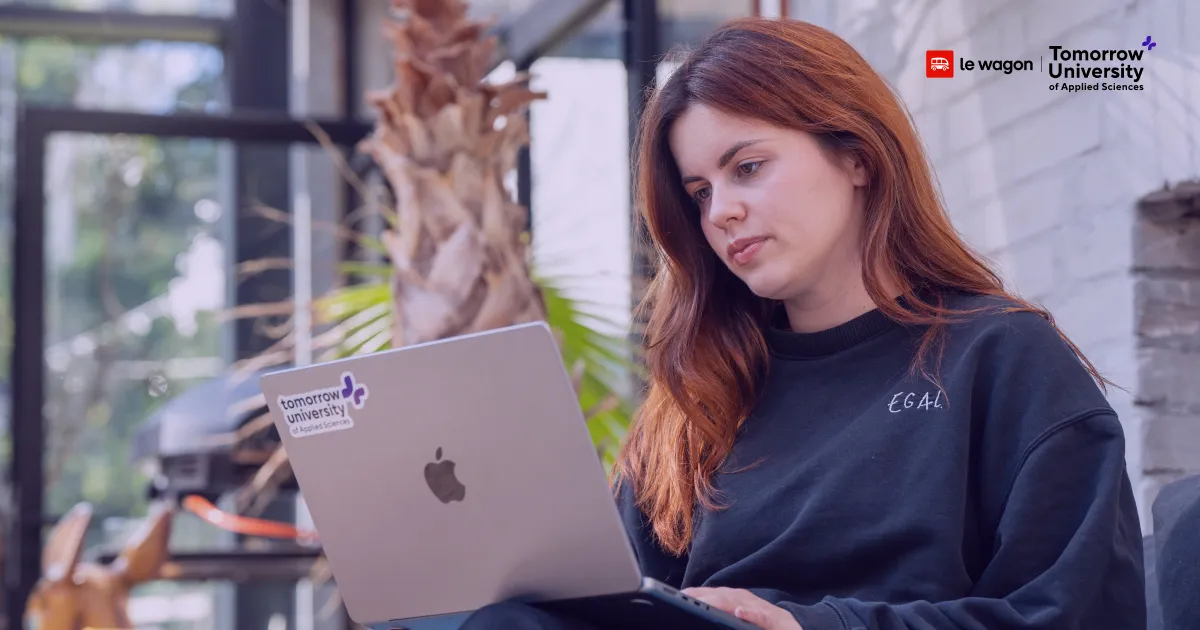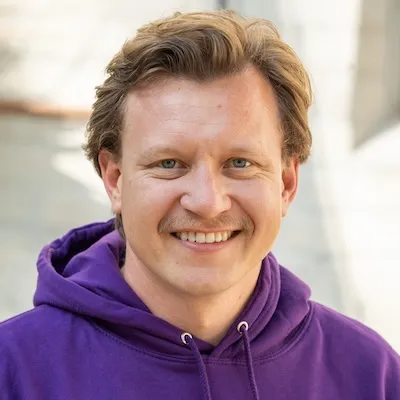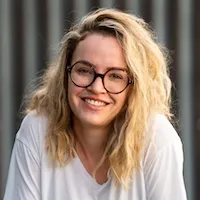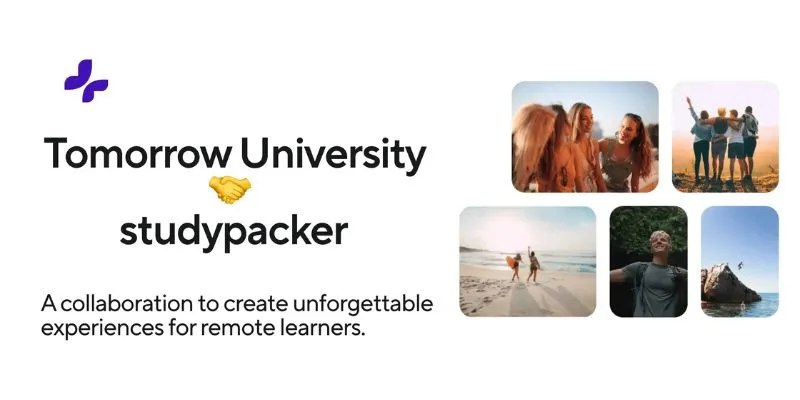Interview: ToU’s Co-Founder on the Future of Education
What if education focused on impact first? In this interview, Tomorrow University’s co-founder shares why the world needs new learning models—and how ToU is building them. How AI Is Reshaping the Future of Education Learn about mission-driven education, future skills, and where we go from here.
.webp)
Christian talks about the vision and mission behind Tomorrow University of Applied Sciences and how the talent coming from ToU will be our future's next sustainable founders, leaders, and visionaries. Interview by PM in SET Learner Ash Barbour
The university designed for impact, an interview with Co-CEO Christian Rebernik.
I had the pleasure of interviewing the amazingly-accomplished startup veteran, Christian Rebernik, Co-Founder, and CEO of Tomorrow University of Applied Sciences, in our ToU metaverse campus.
As a learner at ToU, Christian and I have talked before, however, I feel like we could talk for months and still never run out of interesting ideas and experiences to discuss, so I was very happy when he was also keen to do this interview.
Ash: How did you meet Thomas and when did the ToU idea come into existence?
Christian: It’s a long story. First, I studied economics, which was boring, so I quit. (Can you spot the entrepreneur in the room?...)
Then I started my own company. I literally worked 100 hours per week, during the .com bubble, which was a crisis for a lot of businesses. A couple of our customers actually couldn't pay us, which forced me to shut down the business. Following this, I joined my first company, which was Active Agent back then, which planned to do an IPO, but they failed as well, due to market reasons.
I then moved on to work as a developer at Bwin, the sports betting company, and they actually succeeded as a business. They had a problem where they didn’t have the right people to develop the program. So I joined as one of their first developers to help build the whole thing.
Bwin was a huge success. They had the funding, and it was all about building it up. We started with 30 people and built the company to 3.000 people. So it grew 100-fold over nine years.
So, Bwin is actually where I met Thomas. First, I met him at some parties, because we had a lot of parties back then, in 2005. I left Bwin in 2009 to follow a more entrepreneurial career, I took a lot of CTO jobs and later founded companies, et cetera. After Bwin, Thomas continued his career in the education space.
Through good luck, 15 years later, we met each other again because after leaving my last company, Vivy, I was asking myself, ‘What's the biggest positive impact I can have as an entrepreneur?’. What do I really want to put my passion for and what is the biggest positive contribution I can bring to the world? That’s when I thought about education for a couple of reasons.
There was one trigger in particular with my kids. While they were learning from home during Covid restrictions, they actually fell asleep right in front of me during their class! I tried to listen to the teacher, and he was talking for one hour straight. I was shocked that nothing has changed since I went to school. I couldn't believe that it had been 20 or 30 years and the education industry hadn’t changed.
With my background in technology, I knew this could be fixed somehow. For example, in banking where things have so drastically changed from the bank branch model, where you need to wait in line until you're served, to now, where you can use your smartphone to transfer money or get your balance. I thought the same must be possible in education, but the thing is, I had no clue about the education industry. So that's where I then talked to many people and started researching to understand the industry.
A friend of Thomas and myself, who actually was one of our Bachelor's learners of Thomas, told me I need to talk to him, and then after 15 years or so, we actually connected again. I shared my ideas and concerns with him, and we both agreed it was so imperative to innovate in the education industry.
He was in education for a long time. He was actually one of the best-rated academics in his field, but when he tried to innovate from within the university, he just said it's so just too hard to make any changes.
In traditional universities, the incentivization is too much on research, rather than actually helping people to grow. That's where we said, okay, that's a great problem to solve, and we are both passionate about it, so we decided to start ToU.
Ash: We've talked previously, and you've said that a startup accelerator could be something in the pipeline for ToU. You've also mentioned that you are optimizing ToU for the biggest positive impact. So then I was thinking, what exactly could that look like?
For example, is the ‘biggest possible impact’ for ToU, going the traditional uni route or perhaps complimenting like other startup accelerators with learning content, or even maybe launching on EDx or Coursera, in order to really maximize ToUs potential reach?
Obviously, you guys are thinking about this. I find it interesting to try and see from your perspective how you judge and prioritize those opportunities and what your thoughts are on the future of ToUs impact.
Christian: Exactly, our purpose is to accelerate the transition to a sustainable society, and we think we can do this most effectively by educating and empowering the change makers of tomorrow to be successful.
We truly believe the next Elon Musk, or the next sustainable Amazon founder, could come through our degree programs.
So our entry into the education market is through the degree programs because we think it's an amazing opportunity where you currently have very ‘traditional players’ and no one is really challenged in the space, and that’s why we think this is a great place to start.
While we love Coursera, we believe that just doing a course online doesn't fully equip the learner, as they need a playground to practice their new skills — this is the key challenge for a learner's growth.
You need to have a playground to work together with other learners on challenges and problems to learn together. In education science, this is called the Bloom 2 Sigma effect. We make this possible at ToU by not only working directly with your classmates but also working alongside mentors.
Apart from also giving you the playground to practice these new skills, the ToU degrees also help you to get credibility. A degree is a strong signaling factor for any employers or investors who you're talking to eventually.
Also, regarding maximizing our potential reach and impact, we will soon start to open up the ToU class challenges to the public. This way, members of the public can join select courses alongside our learners.
We are doing this so that, for example, corporations or startup accelerators can offer our learning content to their employees or startups. Maybe they want to learn no-code tools or something about business development or finances — they can simply take one of our individual courses.
We're excited to roll this out, as it would allow more people to benefit from our content and increase our positive impact from this perspective.
There are a couple more plans we have to accelerate this. Like every startup, you need to start somewhere and take it step-by-step. We think there's a huge potential to help people all around the world, eventually.
Ash: The biggest pleasant surprise for me when I joined ToU, was actually the learner/alumni network. The idea of having a group of people who are all focused on positive impact and entrepreneurship is super exciting, to me. I haven't found anything else like this before.
Do you have any vision of what the ToU alumni community could grow to be?
Because there's so much potential with a network full of impact-driven entrepreneurs.
Christian: The short answer is yes, we do have some ideas of what the alumni network could grow to be. The thing is that there are many alumni networks out there, and I know many networks which are not active and, therefore, not very helpful. We don't want yet just another alumni network with thousands of people where no one is contributing anything.
At ToU, our mission of learner empowerment and education doesn't stop at an age. It doesn't stop at the degree. I think that in the workforce, you need to learn and evolve continually. We want to create a support network for this. We think you need to have like-minded people who are also active and committed. And this is what we will create with the ToU alumni network.
Ash: On a personal note, over your career, you started as a developer, then CTO, and you are now a CEO; How has your work-life balance evolved over your career? Are there any specific skills or tips that you would want to share with younger entrepreneurs?
Christian: Yeah, so the first thing is very important to think about purpose, which is the reason we have the mission identification course at the start of our Master's Degree; you need to know where you want to go.
If you don't move where you want to go, then no help or support is going to help you. So it really helps if you know what you want to achieve. Doing this will allow you to make certain decisions, which are important because you will have limited time.
Even if you're young, there is limited time. It helps just by giving you a direction and for you to be true to that. Be true to your mission when it comes to what you want and also when it comes to your values (does your vision align with your values?)
If you identify your mission, you will immediately simplify a lot of things. The second thing that can help is to recognize that many things in your life are just happening to you, and you don’t have full control. For example, how you make decisions or how you stay energized; These things are results of your habits.
This is why I love to repeat that it's so important to start building up habits and forming them, reflecting on them, and forming them consciously, because if you don’t, then you are a result of them.
If you have low energy, that's because you have maybe the wrong habits built up in the first place, and it's tough to change those once they're established. They become automatic things. This is a good thing, because then you don't need to think about them anymore, but you need to build them up systematically over time consciously.
I'll just start with how, how do you get energy. How do you grow? How do you learn? How do you want to connect with other people?
If you have a negotiation or if you have a meeting coming up, what are you doing before? What are you doing afterward? Also, do you start with the hardest tasks first thing in the morning? or do you start with the easiest tasks?
There are a lot of not obvious controlling factors in our lives. I don't want to make it sound too structured, but I think it's very important to acknowledge, and it's the reason that I have to build up habits, which especially help me now when it comes to energizing:
I wake up early, and I have a morning routine, which ensures that I have enough time to reflect and plan things.
It is very important to start building up those habits because every habit is a multiplier. If you just improve them a little bit every day, and if they're in line with your purpose, then achieving your goals is imminent. It's tough not to achieve your goals if you’ve set up your habits well.
First, focus on sleep, health, and nutrition; relaxation and work will follow. These habits are not only things that happen when you wake up; they even include your thinking process itself.
Ash: Is there anything you would like to add for future ToU learners, who are reading this?
Christian: What we at ToU believe is that challenging yourself and getting out of your comfort zone — that's where the magic happens, and that's where the growth happens.
Pushing yourself is critical for your growth, and this is where we can help you in a structured way. With our Master's and Bachelor's Degree programs, we can help you in your personal career growth by building your network on an international scale.

.svg)
.svg)
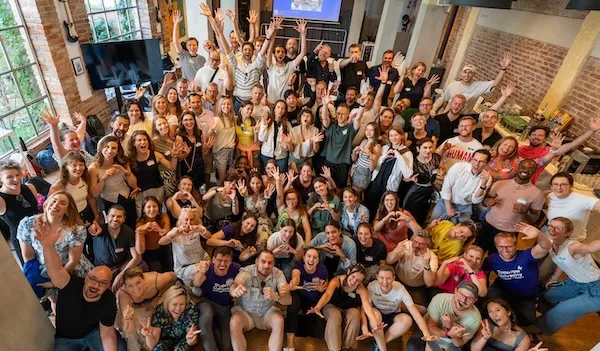
.svg)



.webp)


